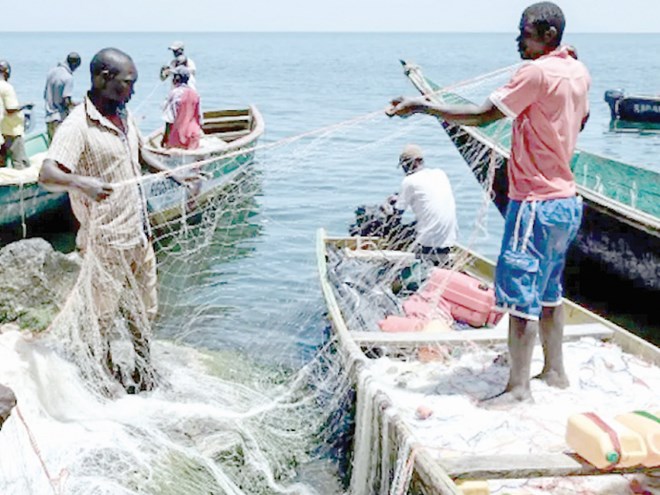
Wednesday May 22, 2024

Fishermen at lake Victoria during a past fishing mission. PHOTO/Print
The term illegal, unreported and unregulated (IUU) fishing may only be well understood in the blue economy sphere, but the problem it describes poses a significant threat to marine ecosystems and coastal communities worldwide.
In East Africa, the practice has reached critical proportions, affecting the livelihoods of millions and threatening marine resources. The waters off the coast of countries such as Kenya, Tanzania, Somalia and Mozambique are rich in biodiversity and economic potential, yet they are increasingly at risk from rampant IUU fishing activities.
IUU fishing encompasses a range of activities that violate national and international laws. It includes fishing without proper licences, failing to report catches, exceeding quotas, using prohibited gear and fishing in closed areas or during closed seasons. In East Africa, the problem is exacerbated by the region’s extensive coastline and limited capacity for surveillance and enforcement.
Several other inadequacies leave loopholes that make illegal fishing possible. They include weak governance and enforcement that make it challenging to adequately monitor and control fishing activities off their coastlines. Local and international corruption, perpetrated by the violators, and lack of political further undermine enforcement.
There is also high local and international demand for seafood. Local communities rely heavily on fish for food and income, while international markets, particularly in Asia and Europe, create lucrative opportunities for illegal operators. The consequences of illegal fishing can be catastrophic. First is environmental degradation, because of overfishing and the depletion of fish stocks. It disrupts marine ecosystems, affecting biodiversity and the health of coral reefs and mangroves. Such destructive fishing practices as the use of dynamite and cyanide cause irreversible damage to habitats. The economic loss suffered by the affected countries is enormous. Legal fishers face unfair competition, leading to reduced incomes and job losses. Governments lose revenue from taxes and fees that could be used support development initiatives.
The depletion of fish stocks due to illegal fishing threatens food security in many coastal communities, particularly for vulnerable populations. Social consequences that include loss of livelihoods and income exacerbate poverty and can lead to increased migration and social instability. It undermines traditional fishing practices and cultural heritage, affecting cohesion in and between communities. Kenya has made some strides in addressing fishing, including establishing a Coast Guard and working to increase regional cooperation. However, enforcement remains inconsistent and erratic, leaving illegal activities to persist, particularly in remote areas.
The waters off Somalia, which are among the richest fishing grounds in the region, are heavily targeted by illegal fishing fleets, primarily from powerful East Asian nations. The absence of a stable government for many years has left the country’s marine resources vulnerable to unchecked exploitation.
Tanzania also suffers under-resourced enforcement, and has been cited regionally in maritime research for widespread use of illegal gear, such as mono-filament nets, which are cheap and effective but highly destructive.
Blue economy experts say the capacity of national and regional enforcement agencies should be enhanced , including investing in surveillance technology, training personnel and imosing stricter penalties for violations.
Addressing illegal fishing involves tackling its root causes. This will help East African countries protect their marine environments and secure a better future for their coastal communities.